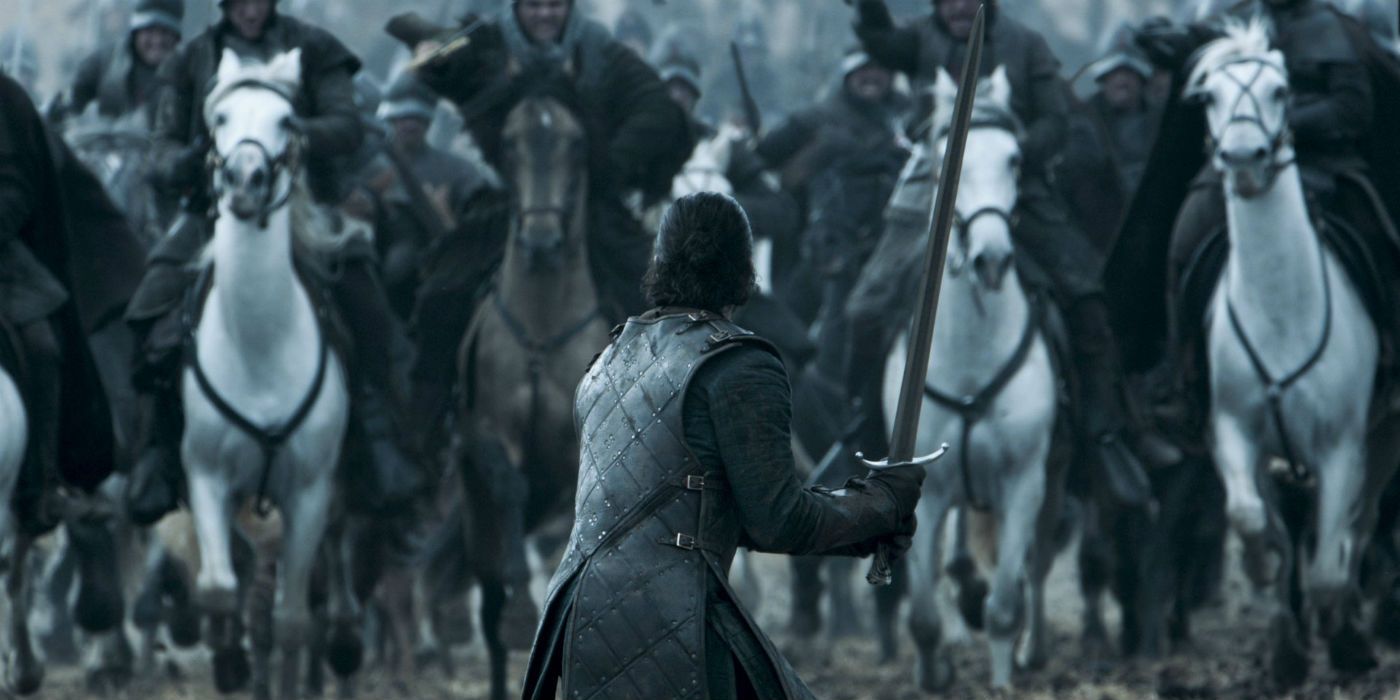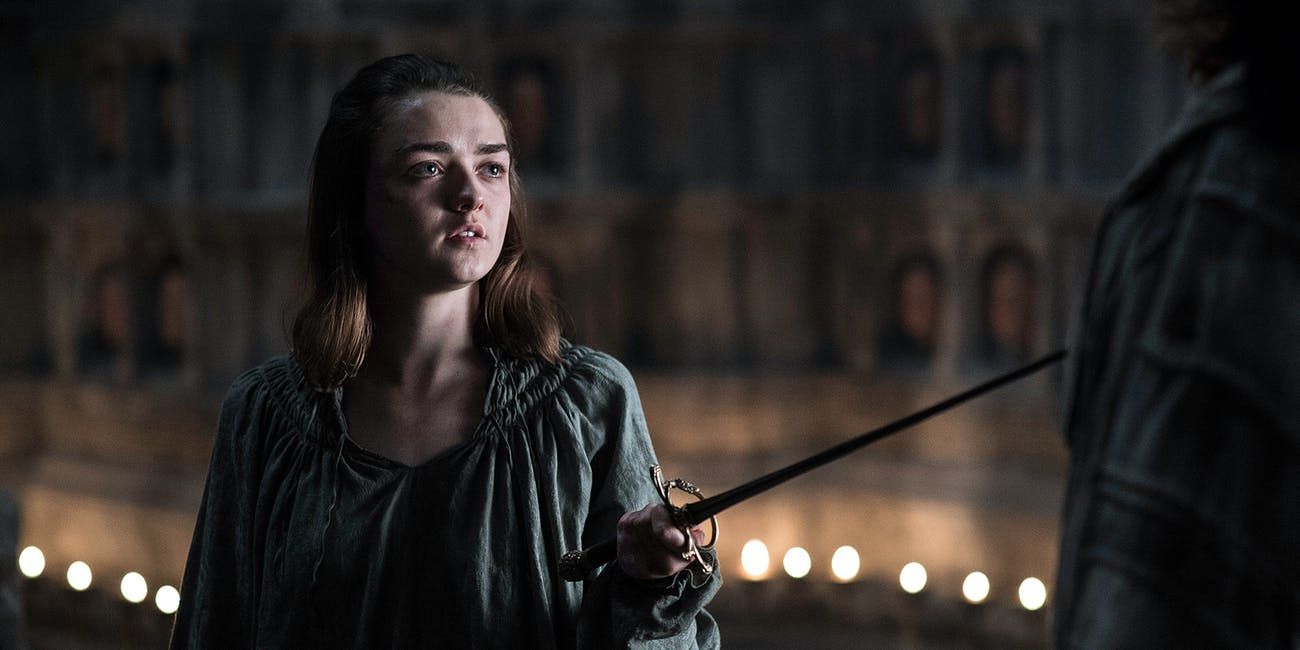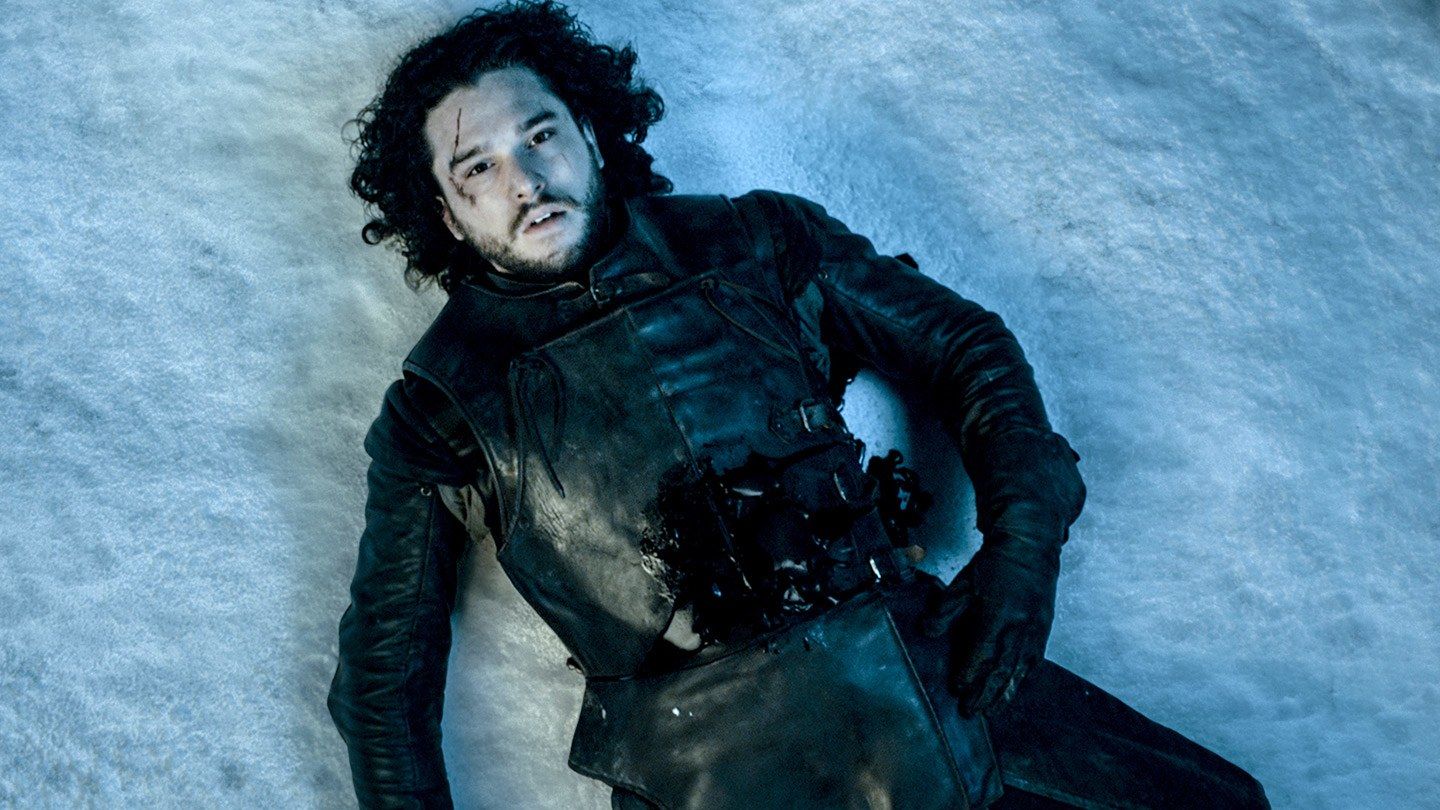WARNING: The following contains spoilers for the first two episodes of Season 8 of Game of Thrones.
The latest episode of Game of Thrones was the epitome of the calm before the storm, as the various defenders of Winterfell braced themselves in a myriad of ways for the impending arrival of the White Walkers and their army of the dead. Hopelessly outnumbered by the unstoppable, mythical beings, most of the characters present consider this last stand to be their final night alive and prepare for it in character-appropriate ways, including Jon Snow brooding in the Stark family crypt, Arya Stark having sex for the first time, and Tyrion Lannister and Podrick once again getting drunk together. It's one poignant moment after another as each of the characters in Winterfell contemplate their own mortality, but, really, this theme has been present from the start of the series, and serves as the dark fantasy epic's underlying message.
Death is a constant presence in George R.R. Martin's longrunning story; in many ways, the White Walkers and the Night King who leads them are death personified, as confirmed by the HBO series co-creator David Benioff. That they are able to raise and command the dead is not a subtle extension of the metaphor. Just as death comes for everyone, the White Walkers themselves are relentless, able to be slowed but never vanquished completely as they continue their lethal march through Westeros. But the theme of how characters confront death existed in the story before the White Walkers played such a pivotal role.
During the first season, Ned Stark had a master swordsman named Syrio Forel train his daughter Arya. As the warrior taught the young girl to master her weapon, he imparted an inspiring piece of wisdom, declaring, "there is only one god, and his name is Death. And there is only one thing we say to Death: 'Not today.'" This axiom would not only underscore the prominence of death in the series, but serve as a call to defiant arms against its inevitability.
Syrio's words proved to be poetically foreshadowing, as death constantly claimed major characters over the course of the series, including, by the end of the first season, the swordsman himself. And as each main character stared death in the face, how they reacted against the encroaching darkness would reveal the true depths of each character in their final moments. Ned Stark would approach the executioner's block not groveling for his life, but with the quiet, noble dignity he had always carried himself with. Peytr Baelish would attempt to weasel his way out of the inevitable, begging anyone who would listen before meeting his untimely end. Oberyn Martell would be typically overconfident and cocky, unable to recognize death until it was too late with graphically gruesome consequences. And Syrio himself would go out as he was always going to leave this mortal plane: Fighting.
In the first seven seasons of Game of Thrones, virtually every major character who dies sees death coming before their demise, and how they react reveals much about each of them. And with the final four episodes of the series involving the remaining characters facing off against the forces of death incarnate, many more major characters will inevitably unveil their true natures to the audience as they die in the fight.
This isn't to say, necessarily, that every major character in the series will be dead by the end of the finale, but as early as the next episode, death will surely rear its ugly head. And, as Ramsay Bolton warned Theon Greyjoy (and, by extension, the audience) in Season 3, if you expect this particular story to have a happy ending, you haven't been paying attention.
How each of us face death is a telling final note on how each of us lived life, and the season most associated with death has always been winter. Every year since its series premiere in 2011, the show's marketing has noted that winter is coming. What fans may not have realized the whole time is that the phrase was a reference to the marching inevitability of death. Now, as Game of Thrones moves into its own end for its final four episodes, death has inescapably come to Westeros and all those who defend it.
Airing Sundays at 9 p.m. ET on HBO, Game of Thrones stars Peter Dinklage as Tyrion Lannister, Nikolaj Coster-Waldau as Jaime Lannister, Lena Headey as Cersei Lannister, Emilia Clarke as Daenerys Targaryen, Sophie Turner as Sansa Stark, Maisie Williams as Arya Stark and Kit Harington as Jon Snow.



